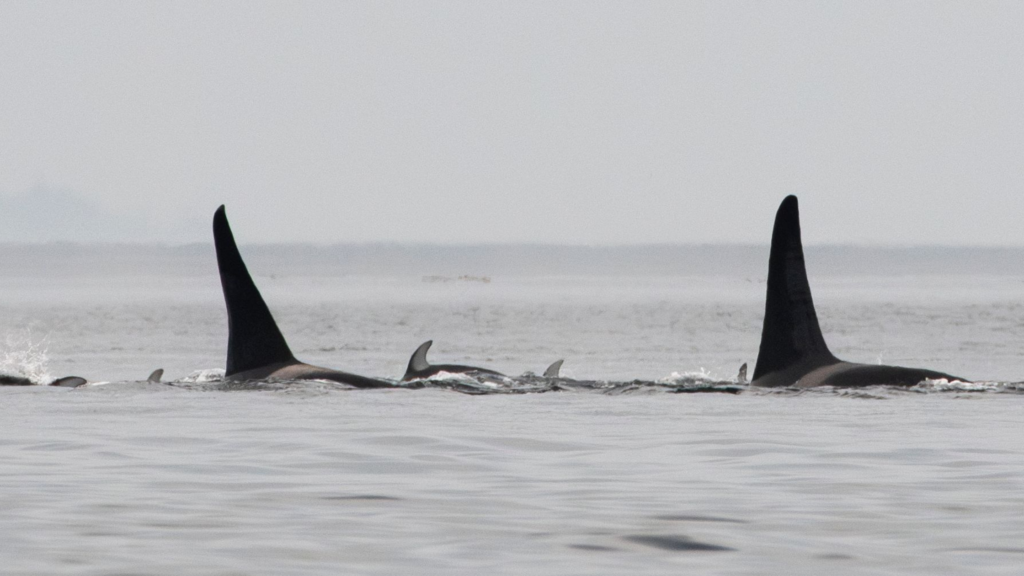In the majestic waters surrounding Vancouver Island, the intricate social lives of orcas unfold—a testament to their intelligence and adaptability. At Orca Camp, visitors are offered a unique glimpse into these complex social interactions of the Northern Resident Killer Whales, gaining a deeper understanding of the family structures, communication methods, and hunting strategies that define orca society.
At the heart of orca family dynamics lies the matriarch’s rule. The matriarch leads her pod with wisdom and experience, guiding their movements and decisions. These family bonds are profound and enduring; offspring remain with their mothers for life, forming close-knit groups that provide unwavering support and protection. Such familial ties are not just about survival but form the very foundation of orca society.
Communication among orcas is nothing short of remarkable. Utilizing an intricate system of clicks, whistles, and pulsed calls, these marine mammals convey critical information about food sources, potential threats, and individual identities within their pods. Their ability to mimic sounds from other species adds another layer to their communicative prowess—possibly aiding in hunting strategies or enhancing interspecies interactions.
Orcas are renowned for their cooperative hunting strategies—an impressive display of teamwork and coordination. Each pod develops specialized techniques tailored to its environment; some may encircle schools of fish while others employ tactics suited for larger prey like seals or even whales. This collaborative approach underscores their status as apex predators capable of overwhelming formidable prey through unity.
Cultural differences among orca populations further illustrate their diversity. Distinctive cultures shape everything from dietary preferences—some favoring salmon while others pursue seals—to social behaviors unique to each group. These cultural nuances highlight not only the adaptability but also the rich tapestry that is orca society.
Protecting them requires a deep understanding of their social behavior—a crucial element in crafting effective conservation strategies aimed at safeguarding both current populations and future generations.
Through earnest exploration at Orca Camp on Vancouver Island—and beyond—we can foster greater appreciation for these enigmatic beings whose lives resonate deeply with our own interconnectedness within nature’s grand design.
